Thinking of giving your Melbourne home a fresh new look? Whether you’re updating an outdated kitchen, modernising a bathroom, or completely reworking your floor plan, understanding the renovation process is the key to a smooth and successful project.
A home renovation is exciting, but it can also be complex — involving planning, approvals, budgeting, and coordination between multiple trades. In this guide, we’ll walk you through the renovation steps, explain what to expect at each stage, and share tips to keep your project workflow on track from start to finish.
1. Understanding the Renovation Process
Every successful renovation follows a sequence of stages that ensure the project runs safely, legally, and efficiently. The process can vary depending on the size of the job, your home’s condition, and the builder or designer you choose — but the foundation remains the same.
Renovations in Melbourne typically move through the following major phases:
- Planning and design
- Approvals and permits
- Demolition and preparation
- Structural and rough-in work
- Interior finishes and detailing
- Final inspections and handover
Let’s explore each step in detail.
2. Stage One: Planning and Design
This is where your renovation journey begins. A clear plan ensures your ideas align with your budget, lifestyle, and property structure.
Key tasks during this phase:
- Define your renovation goals — are you improving function, aesthetics, or both?
- Set a realistic budget and timeline.
- Engage a designer, architect, or builder experienced in Melbourne renovations.
- Finalise concept drawings and material selections.
This stage sets the vision. Taking time to plan properly helps you avoid costly design changes later.
Tip: Always think long-term — consider energy efficiency, future resale value, and how the changes will suit your family’s needs in the years ahead.
3. Stage Two: Approvals and Permits
Before any work begins, check what permits your project needs. Melbourne councils require different approvals depending on the scope of renovation.
Common approvals include:
- Building Permit: Required for structural work, extensions, or plumbing/electrical changes.
- Planning Permit: Needed if you’re altering the exterior or layout in certain zones.
- Heritage Approval: If your property falls within a heritage overlay area.
You or your builder can apply for permits through a registered building surveyor.
Skipping this step can result in fines, delays, or even demolition orders — so never start work without proper authorisation.
4. Stage Three: Demolition and Site Preparation
Once permits are granted, the physical transformation begins. This phase involves clearing existing structures and preparing your home for construction.
Typical tasks:
- Removing old fittings, tiles, walls, or flooring
- Protecting parts of the home that aren’t being renovated
- Setting up temporary services (e.g., power, fencing, site access)
- Inspecting existing structures for hidden issues such as termite damage or rot
Demolition must be handled by licensed professionals to ensure safety and compliance with waste-disposal regulations.
Tip: Unexpected discoveries during demolition are common, especially in older Melbourne homes. Always allow a contingency budget of 10–15% for surprises.
5. Stage Four: Structural and Rough-In Work
This is the core construction phase — where the bones of your renovation take shape.
Work completed during this stage:
- Framing new walls, windows, or extensions
- Replacing or reinforcing old foundations and beams
- Plumbing and electrical rough-ins
- HVAC and insulation installation
Builders call this the “rough-in” stage because services are installed but not yet connected or finished. It’s crucial to have experienced trades here to ensure all systems meet Victorian Building Authority (VBA) standards.
6. Stage Five: Interior Finishes and Detailing
Now your renovation starts to look and feel like a finished home. Attention to detail is key in this phase — small decisions make a big difference in the final look.
Common tasks:
- Plastering and painting walls
- Installing flooring, cabinetry, and benchtops
- Fitting bathroom and kitchen fixtures
- Adding lighting, doors, skirting, and trims
This stage is also where most design choices come to life, so regular site visits and clear communication with your builder will help ensure everything matches your vision.
7. Stage Six: Final Inspection and Handover
Before you move back in, your builder or building surveyor will conduct a final inspection to make sure everything complies with building codes and safety regulations.
This step includes:
- Quality assurance checks
- Functional testing (plumbing, electrical, heating)
- Minor defect rectifications
- Final cleaning and site tidy-up
- Issuance of a Certificate of Final Inspection or Occupancy Permit
Once the certificate is issued, your renovation is officially complete. You can now enjoy your upgraded home with peace of mind knowing it meets Melbourne’s construction standards.
8. Factors That Influence Your Renovation Timeline
The duration of your renovation depends on several key factors:
- Project scope: Cosmetic updates take weeks, while full structural remodels can take several months.
- Permit approvals: Council processing times in Melbourne vary between 4 and 12 weeks.
- Trade availability: Scheduling delays can occur during peak construction seasons.
- Material lead times: Imported fixtures and finishes can extend timelines if not ordered early.
- Design complexity: Custom details or bespoke joinery often require extra craftsmanship and time.
On average, small renovations take 4–8 weeks, while large-scale home remodels can run from 3 to 9 months.
9. Tips to Ensure a Smooth Renovation Workflow
To keep your project on schedule and stress-free, follow these practical steps:
- Engage professionals early. Choose a builder and designer with proven renovation experience.
- Set clear expectations. Discuss communication methods, progress updates, and payment schedules upfront.
- Plan your living arrangements. If your home will be uninhabitable, arrange temporary accommodation early.
- Stay involved. Attend site meetings and track progress regularly.
- Avoid scope changes mid-project. Last-minute design changes often cause budget blowouts.
- Confirm warranties and certifications. Ensure all installed items meet Australian standards.
10. Common Questions About the Renovation Process
Q: Do I need a permit for small renovations?
A: Minor cosmetic work like painting or replacing fixtures usually doesn’t need approval. However, any structural or plumbing/electrical changes require a building permit.
Q: How long does a home renovation take in Melbourne?
A: Small projects may take 1–2 months, while larger remodels can last 6–9 months depending on complexity.
Q: Can I live in my house during renovation?
A: It depends on the scope of work. Some homeowners can stay for minor updates, but full-scale renovations may require moving out temporarily.
Q: How do I choose the right builder?
A: Look for registered builders with local experience, verified licences, and positive client reviews. Always request a fixed-price contract.
Q: How do I keep my renovation within budget?
A: Stick to your design plan, order materials early, and keep a 10–15% contingency fund for unexpected costs.
11. Key Takeaways
- The renovation process in Melbourne involves structured stages — from design and permits to finishes and inspection.
- Allow sufficient time for planning and approvals before starting work.
- Clear communication and professional guidance reduce delays and cost overruns.
- Always work with registered builders and comply with all VBA regulations for a safe, successful renovation.
12. Final Thoughts
Renovating your Melbourne home is a major investment — both financially and emotionally.
By understanding each renovation stage, preparing the right documents, and choosing reliable professionals, you’ll enjoy a smoother experience and a result that truly transforms your space.
From the first design sketch to the final coat of paint, a well-planned renovation delivers not just a beautiful home but peace of mind that every detail meets local standards and your personal vision.
Ready to start your transformation? Contact a trusted Melbourne renovation specialist today to discuss your project goals and timeline.
Suggested Schema Markup:
- Article Schema
- FAQ Schema
- HowTo Schema
Internal Link Suggestions:
- “Extension Approval Process Melbourne”
- “Home Building Timeline Melbourne”
- “Construction Timeline Melbourne”
- “House Extension Cost Melbourne”




